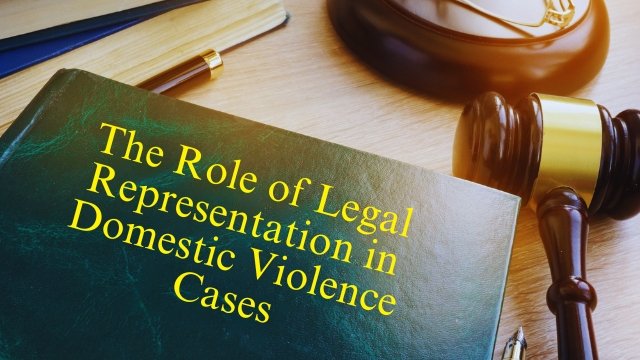The Importance of Legal Representation in Domestic Violence Cases: A Comprehensive Guide
Domestic violence is a serious issue that affects countless individuals across the globe. In India, the Protection of Women from Domestic Violence Act, 2005 (DV Act), was enacted to offer legal protection and support to women who face domestic abuse. However, despite the legal framework in place, many victims still struggle to access justice due to various challenges, including the non-enforcement of protection orders and the complexity of legal procedures. At Not Guilty Law Offices, we believe that every individual deserves robust legal representation to ensure their rights are protected and justice is served.
Understanding the Domestic Violence Act, 2005
The Domestic Violence Act, 2005, is a crucial piece of legislation aimed at protecting women from various forms of domestic abuse, including physical, emotional, sexual, and economic violence. The Act provides several remedies for victims, including protection orders, residence orders, monetary relief, and custody orders. These measures are designed to offer immediate relief and ensure the safety and well-being of victims.
However, while the Act is comprehensive, its effectiveness largely depends on the proper enforcement of these orders. Unfortunately, many victims find themselves in situations where protection orders are not enforced, leaving them vulnerable to further abuse. This is where legal representation becomes critical.
The Role of Legal Representation in Domestic Violence Cases

Legal representation plays a vital role in navigating the complexities of the DV Act and ensuring that victims receive the protection and justice they deserve. Here are some key reasons why having a skilled lawyer is essential in domestic violence cases:
1. Understanding the Law: The DV Act is a complex piece of legislation with numerous provisions that can be difficult for a layperson to understand. A lawyer specializing in domestic violence cases can help victims understand their rights and the legal remedies available to them. This knowledge is crucial in making informed decisions and taking appropriate legal action.
2. Filing the Case: The process of filing a domestic violence case involves several steps, including drafting the complaint, gathering evidence, and submitting the necessary documents to the court. A lawyer can assist with all these aspects, ensuring that the case is filed correctly and in a timely manner. This reduces the risk of delays or procedural errors that could weaken the case.
3. Obtaining Protection Orders: One of the primary remedies under the DV Act is the issuance of protection orders, which are meant to prevent the abuser from causing further harm to the victim. A lawyer can advocate for the issuance of these orders and ensure that they are comprehensive enough to provide adequate protection. This may include restraining the abuser from contacting the victim, staying away from the victim’s residence, or prohibiting the abuser from accessing shared assets.
4. Enforcing Protection Orders: As mentioned earlier, the enforcement of protection orders is a significant challenge in many domestic violence cases. A lawyer can play a crucial role in ensuring that these orders are enforced. This may involve coordinating with law enforcement, filing contempt of court applications if the orders are violated, and taking other legal steps to hold the abuser accountable.
5. Securing Monetary Relief: The DV Act also provides for monetary relief to cover the victim’s medical expenses, loss of earnings, and other financial needs resulting from the abuse. A lawyer can help victims calculate the appropriate amount of relief and advocate for its award in court. In cases where the abuser is a salaried person, the lawyer can assist in garnishing the abuser’s wages to secure the relief.
6. Custody and Residence Orders: For victims with children, securing custody and residence orders is often a top priority. A lawyer can help negotiate these orders to ensure that the victim and their children are safe and have a stable living environment. This may include securing temporary custody, preventing the abuser from entering the victim’s residence, or arranging for alternative housing.
7. Long-Term Legal Strategy: Domestic violence cases often involve long-term legal battles, particularly when it comes to issues like divorce, child custody, and property division. A lawyer can develop a long-term legal strategy that addresses all these issues and ensures that the victim’s rights are protected throughout the process.
Challenges in Domestic Violence Cases
Despite the protections offered by the DV Act, victims of domestic violence often face numerous challenges in accessing justice. Some of the most common challenges include:
1. Lack of Awareness: Many victims are unaware of their rights under the DV Act and the legal remedies available to them. This lack of awareness can prevent them from seeking help and taking legal action against their abusers.
2. Social Stigma: Domestic violence is often seen as a private matter, and many victims fear the social stigma associated with coming forward. This can make it difficult for them to seek legal representation or report the abuse to authorities.
3. Economic Dependence: Economic dependence on the abuser is a significant barrier for many victims. Without financial independence, victims may feel trapped in abusive relationships and unable to seek legal help.
4. Non-Enforcement of Orders: Even when victims do obtain protection orders, the lack of enforcement can render these orders ineffective. This can leave victims vulnerable to continued abuse and undermine their faith in the legal system.
How Not Guilty Law Offices Can Help

At Not Guilty Law Offices, we are committed to helping victims of domestic violence navigate the legal system and secure the protection they need. Our team of experienced lawyers is well-versed in the provisions of the DV Act and has a proven track record of successfully representing clients in domestic violence cases.
We offer a range of services to support victims, including:
- Legal Consultation: We provide comprehensive legal consultations to help victims understand their rights and the legal options available to them.
- Case Filing: Our lawyers assist with the drafting and filing of domestic violence cases, ensuring that all necessary documentation is in order.
- Representation in Court: We represent clients in court proceedings, advocating for the issuance and enforcement of protection orders, monetary relief, and other remedies.
- Long-Term Legal Support: We offer long-term legal support to help clients navigate related legal issues, such as divorce, child custody, and property division.
- Awareness and Education: We are dedicated to raising awareness about domestic violence and the legal protections available under the DV Act. We conduct workshops and seminars to educate the public and empower victims to seek justice.
Conclusion
Domestic violence is a pervasive issue that requires a strong legal response. The Protection of Women from Domestic Violence Act, 2005, provides a robust legal framework for protecting victims, but effective enforcement and legal representation are crucial to ensuring that justice is served. At Not Guilty Law Offices, we are committed to standing by victims of domestic violence and helping them secure the protection and relief they deserve. If you or someone you know is facing domestic violence, do not hesitate to reach out to us for legal assistance. Your safety and well-being are our top priorities.



